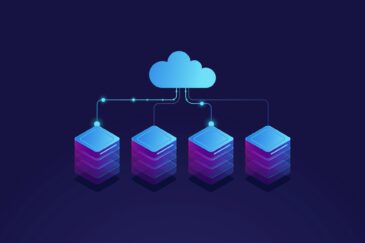Oracle ERP Cloud vs. SAP : How do you Choose the Right ERP System?

- December 26, 2023
- Jhansi Rani
- 0
The choice between Oracle Cloud ERP and SAP depends on various factors, including your organization’s specific needs and preferences. Oracle and SAP are well-established vendors in the ERP market, offering robust solutions with extensive features. Here are some considerations to help you evaluate which ERP system may be the best fit for your organization:
Functional Requirements
Assessing the functional requirements involves comprehensively examining your organization’s business processes and needs. Identify the key modules and features crucial for your operations, such as financial management, human resources, supply chain, and procurement. Compare the offerings of Oracle Cloud ERP and SAP to determine which system aligns more closely with your organization’s workflows and requirements, ensuring the chosen ERP solutions effectively supports and enhances your business processes.
Industry Focus
Consideration of industry focus is crucial as different ERP systems may have varying strengths in addressing industry-specific challenges. SAP, for example, has a strong presence in manufacturing, while Oracle Cloud ERP is often preferred in retail and services. Research each vendor’s success stories, case studies, and client base within your industry to gauge their expertise and track record, ensuring that the selected ERP system has proven efficacy in addressing the unique demands of your business sector.
Scalability
Evaluating the scalability of an ERP system involves assessing its ability to accommodate the growth and changing needs of your organization over time. Consider factors such as the future number of users, data volume, and additional functionalities that may be required. Both Oracle Cloud ERP and SAP are designed to scale, but the ease and cost-effectiveness of scaling can vary. A scalable ERP system ensures that as your business expands, the software can efficiently handle increased transactions, users, and data without significant disruptions or a major system overhaul.
Integration Capabilities
Integration capabilities are crucial for ensuring seamless communication and data flow between the ERP system and other applications within your organization’s IT landscape. Evaluate the compatibility of Oracle Cloud ERP and SAP with your existing systems, such as CRM, business intelligence tools, or legacy applications. A robust integration framework allows for efficient data transfer, streamlines processes, and provides a holistic view of your business operations. Choose an ERP system that facilitates easy integration, reducing the risk of data silos and enhancing overall organizational efficiency.
Cloud vs. On-Premise
The decision between a cloud-based or on-premise ERP solution involves considering cost, flexibility, and maintenance preferences. Oracle Cloud ERP is a cloud-native solution that offers advantages like accessibility from anywhere and automatic updates. In contrast, SAP provides cloud and on-premise options, allowing businesses to choose based on their needs and IT infrastructure. Cloud solutions often involve subscription-based pricing and lower upfront costs, while on-premise solutions may provide greater control over data and customization. Evaluate the pros and cons of both deployment models based on your organization’s requirements and strategic considerations.
User Experience
User experience is critical in successfully adopting and utilizing an ERP system. Assess the user interface, navigation, and overall usability of both solutions. A user-friendly interface enhances productivity and reduces training time for employees. Consider conducting user trials or seeking feedback from potential end-users to gauge the intuitiveness of each system. A well-designed and intuitive ERP system contributes to higher user satisfaction and can positively impact the overall success of the implementation.
Cost Considerations
Cost considerations in choosing between Oracle Cloud ERP and SAP extend beyond initial licensing fees to encompass the total cost of ownership. Evaluate implementation costs, ongoing maintenance, support, and potential customization expenses. Cloud-based solutions often involve subscription fees and may offer cost savings in infrastructure maintenance. On the other hand, on-premise solutions may require higher upfront investments but could provide more control over certain costs. A thorough cost analysis should include a long-term perspective, factoring in scalability and potential future requirements, to make an informed decision based on your organization’s budget and financial strategy.
Vendor Support and Reputation
Assessing vendor support and reputation is essential for successful ERP implementation and long-term satisfaction. Investigate customer reviews, testimonials, and references for both Oracle and SAP. Consider the level of support each vendor provides during implementation and ongoing maintenance. A vendor with a strong reputation for customer support and a history of delivering updates, patches, and responsive assistance can contribute significantly to the success and stability of your ERP system. Additionally, a vendor’s financial stability and commitment to innovation indicate their ability to provide ongoing support and adapt to evolving technology needs.
Global Capabilities
If your organization operates globally, evaluating the global capabilities of Oracle Cloud ERP and SAP is crucial. This includes support for multiple languages, compliance with regional regulations, and handling diverse currencies and taxation systems. Consider the localization features each system offers and how well they align with the specific requirements of the regions in which your business operates. A globally capable ERP system ensures consistency and compliance across international operations, facilitating streamlined processes and reporting on a global scale.
Future Roadmap
Considering the future roadmap of Oracle Cloud ERP and SAP is vital for ensuring that your chosen ERP system aligns with your organization’s long-term goals and evolving needs. Review the vendors’ development plans, product roadmaps, and commitments to innovation. A transparent and forward-looking roadmap provides insights into the future features, functionalities, and technology advancements each ERP system will likely offer. Choose a system whose future direction aligns with your organization’s strategic objectives, ensuring you can leverage emerging technologies, stay compliant with industry standards, and adapt to changing business landscapes. A vendor with a clear and well-defined roadmap demonstrates a commitment to continuous innovation in ERP technology, providing you with a more sustainable and future-proof solution.
Conclusion
There is no one-size-fits-all answer, and the best option depends on your organization’s unique needs and circumstances. To make an informed decision, engage in a thorough evaluation process, including demos, consultations, and possibly a pilot implementation. Additionally, involving key stakeholders from different departments in the decision-making process can ensure that the selected ERP system meets the diverse needs of your organization.
As an Oracle Partner and Oracle Cloud Service Partner, we have vast experience in Oracle ERP Cloud implementation for our customers. With our best-practice-driven approach and proven Oracle ERP Cloud implementation methodology, we will become a trusted partner in your journey to Oracle ERP Cloud – from the early stages of defining a cloud roadmap to future upgrades, maintenance, and support.
Services
Products
Company
Copyright © 2025 Rite Software Solutions & Services LLC. All rights reserved.



